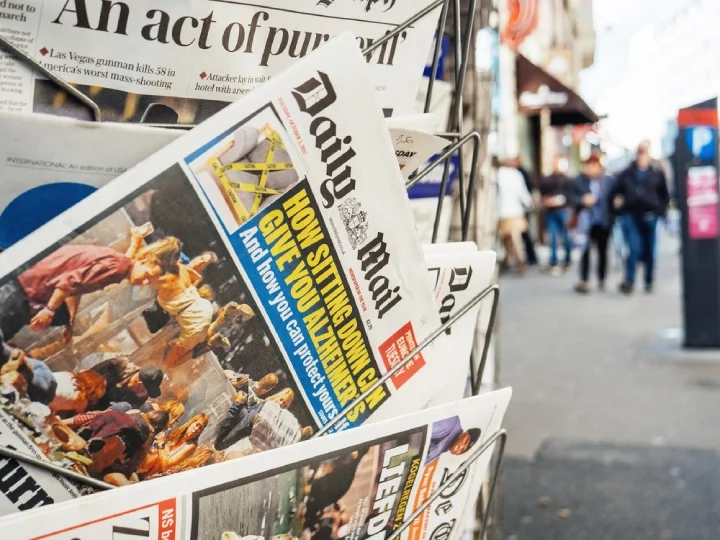
The Daily Mail is one of the UK’s most influential newspapers and has just signed up former prime minister Boris Johnson as a weekly columnist.
The Conservative-supporting title is one of the best-selling newspapers in the UK, with a circulation of 770,185 in May 2023, believed to be just below The Sun although that paper’s sales are no longer public. The Mail on Sunday holds a similar position in the Sunday market, with a circulation of 697,945.
Mail Online has the third biggest audience in the UK behind the BBC and The Sun, reaching 24.8 million people each month. It is the fifth biggest news website in the world and tenth biggest in the US.
The brands’ owner, Daily Mail and General Trust (DMGT), has been run by the same family since 1896 when the Daily Mail newspaper was launched.
Who founded the Daily Mail?
The Daily Mail’s first edition was published on 4 May 1896, having been founded by brothers Alfred and Harold Harmsworth, later also known as Lord Northcliffe and Lord Rothermere.
The broadsheet cost half a penny, with the low price contributing to its success since its main competitors, such as the Daily Telegraph and Evening Standard, were double the price. More than 300,000 copies were sold instead of the expected 100,000 on the first day alone and, by 1902, the Daily Mail’s circulation exceeded one million.
After the First World War, in 1922, Lord Northcliffe passed away and Lord Rothermere took over as editor-in-chief, while continuing as owner and chairman. His son Esmond Harmsworth, Second Viscount Rothermere, then stepped up as chairman in 1932.
The Daily Mail has remained in the hands of the Harmsworth family ever since, including successors Vere Harmsworth (Third Viscount Rothermere) from 1970 and his son Jonathan Harmsworth (Fourth Viscount Rothermere) who became chairman aged 31 in 1998 after the sudden death of his father.
[See also: DMGT targets millennial women with new fashion and beauty brand Eliza]
Who owns the Daily Mail now?
Today, Jonathan Harmsworth, known as Lord Rothermere, remains the owner and chairman of DMGT.
He works alongside chief executive Tim Collier, the former chief financial officer of the company, who was appointed in the new role in March 2023.
Rothermere said: “As a chairman of a family business, finding a CEO to lead your company can be challenging. I am lucky to have built a trusted relationship with Tim over the past six years and I have the utmost respect for his knowledge of our business, leadership ability and strategic vision.”
[See also: ‘Jonathan, I think you’re trying to fire me’: Geordie Greig opens up about Daily Mail]
How has the Daily Mail changed under Jonathan Harmsworth’s ownership?
DMGT shares were first listed on the London Stock Exchange in 1932.
But at the end of 2021 Lord Rothermere took the company private, taking full control of the business.
He later explained going private would “free” the business “from the capricious short-termism of the City” and that being publicly traded had hindered his long-term vision to “spread our wings across the globe” – especially at Mail Online.
It came not long after buying the i in 2019 for £49.6m and the New Scientist in 2021 for £70m, and following a gradual sell-off of several of the company’s non-media assets including Risk Management Solutions, energy data firm Genscape and property site Zoopla. DMGT does still have a property information division, including Landmark Information Group in the UK and Trepp in the US.
Also since Lord Rothermere took over, free newspaper Metro was created in 1999 and Mail Online has grown to be one of the biggest news websites in the world since its 2003 launch.
Related Article: Who reads the Daily Mail? Why biggest print title still has a huge influence
Email pged@pressgazette.co.uk to point out mistakes, provide story tips or send in a letter for publication on our "Letters Page" blog
